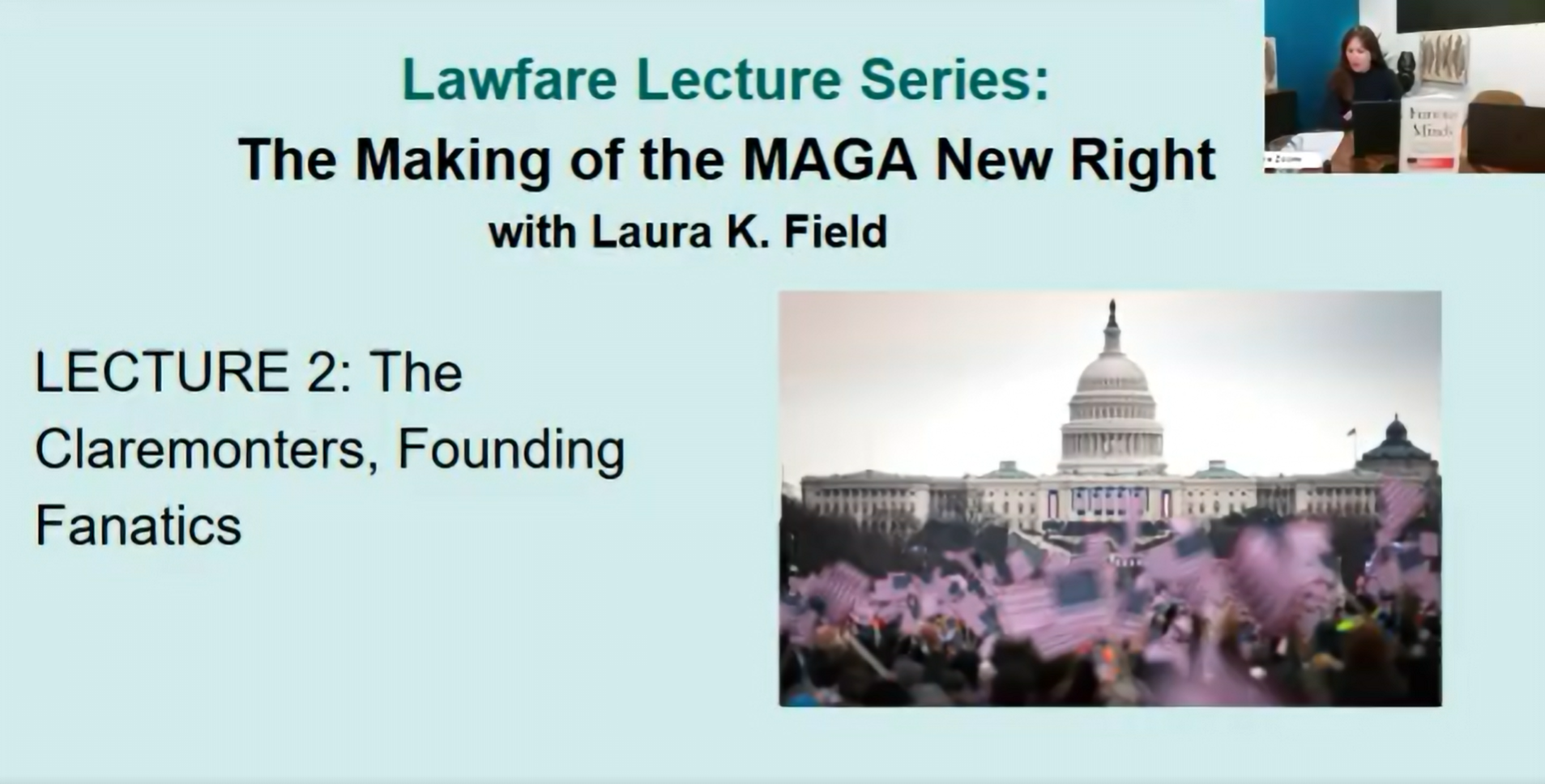The Week That Was: All of Lawfare in One Post
This week at Lawfare, Molly E. Reynolds and Margaret Taylor explained the contents of the House Judiciary Committee’s resolution proposing investigative procedures for an impeachment investigation of President Trump. They suggested the procedures added formality to the investigation but did not necessarily constitute an inflection point for the larger impeachment movement.
This week at Lawfare, Molly E. Reynolds and Margaret Taylor explained the contents of the House Judiciary Committee’s resolution proposing investigative procedures for an impeachment investigation of President Trump. They suggested the procedures added formality to the investigation but did not necessarily constitute an inflection point for the larger impeachment movement. Quinta Jurecic shared the text of the resolution.
On a related note, Jen Patja Howell shared another episode of The Lawfare Podcast focused entirely on Congress and their developing impeachment investigation and ongoing court cases.
Meanwhile, Michael J. Glennon and Charles Tiefer considered how Congress could use the appropriations power as a check on forever wars by creating a procedure to compel the president to seek military funds only where Congress has not banned action.
Strange news surfaced this week regarding the Justice Department's case against former FBI Deputy Director Andrew McCabe. Jurecic and Benjamin Wittes examined the possibilities of what might have gone on behind closed doors at the McCabe grand jury.
This week also marked the 18th anniversary of the 9/11 attacks. Bruce Reidel described U.S. success against al-Qaeda and the ongoing needs to remain vigilant to prevent al-Qaeda and other terrorists from achieving their goals. Asfandyar Mir discussed the perception in U.S. policy circles that al-Qaeda is declining as a primary threat: this mentality is wrong, he argues, as al-Qaeda is reconstructing its capabilities and maintains ambitions of fighting the United States. On the National Security Law Podcast, Bobby Chesney and Steve Vladeck discussed current counterterrorism laws that would have been the biggest surprise in 2001.
On a related note, Emma DiNapoli, Rachael Hanna, Patrick McDonnell and Jacques Singer-Emery provided updates from August on the military commission trying alleged al-Qaeda commander Abd al-Hadi al-Iraqi.
Jacques Singer-Emery summarized the decision by the U.S. District Court for the Eastern District of Virginia in Elhady v. Kable, in which plaintiffs challenged the government’s management of the Terrorist Screening Database (TSDB), or “watchlist.” The judge concluded that the process of placing people on the TSDB deprived them of their liberty interests, but requested supplemental briefings to address remedies.
Mikhaila Fogel posted an order by U.S. District Court for the Northern District of California to restore the nationwide scope of the injunction against the Trump adminsistration's new rule sharply limiting asylum applications. But the Supreme Court then intervened to stay the injunction—and Peter Margulies examined the reasons the justices may have had for this ruling
On this week’s episode of Rational Security, posted by Howell, the discussion centered on John Bolton’s exit from the Trump administration, the CIA’s extraction of a Russian asset who was spying for the United States and Trump’s Middle East peace negotiator leaving his post.
Howell shared an additional episode of The Lawfare Podcast, in which Taylor and Scott Anderson spoke with reporters Colum Lynch and Robbie Gramer of Foreign Policy magazine. They discussed the latest developments inside the U.S. State Department including career official resignations due to disagreements with Trump administration policies.
Jurecic posted a second bonus episode of Lawfare's podcast The Report. This episode covers some of the Lawfare team’s favorite stories from Volume I of the Mueller Report that had not made it into the podcast thus far, including bizarre connections with Olympic weightlifters, Donald Trump, Jr. potentially pleading the Fifth and Michael Flynn’s work with the Turkish government.
Stewart Baker posted the latest episode of The Steptoe Cyberlaw Podcast, focusing on Chinese exploitation of the bankruptcy courts and DHS’s plan to use fake identities to view public social media postings.
In Lawfare’s biweekly summary of U.S.-China tech policy news, Rachel Brown and Preston Lim write about the obstacles surrounding the resumption of trade talks and German Chancellor Angela Merkel’s visit to China, which highlighted the global impact of the bilateral trade disputes.
Lim also described the foreign policy debates likely to gain relevance in Canada as elections approach. Moving south, Vishnu Kannan provided a list of national security-related highlights from this week's U.S. Democratic debate.
Giovanna De Maio explained how Matteo Salvini, the leader of Italy’s popular far-right League Party, came to power and how he can exploit being in the minority now to regain popularity. Kemal Kirisci and Gokce Uysal Kolasin analyzed the situation of Syrian refugees in Turkey and how to integrate them with agricultural reforms to the Turkish economy. And Leti Volpp reviewed Jeffrey S. Kahn’s “Islands of Sovereignty: Haitian Migration and the Borders of Empire.”
And that was the week that was.


.png?sfvrsn=bd249d6d_5)

